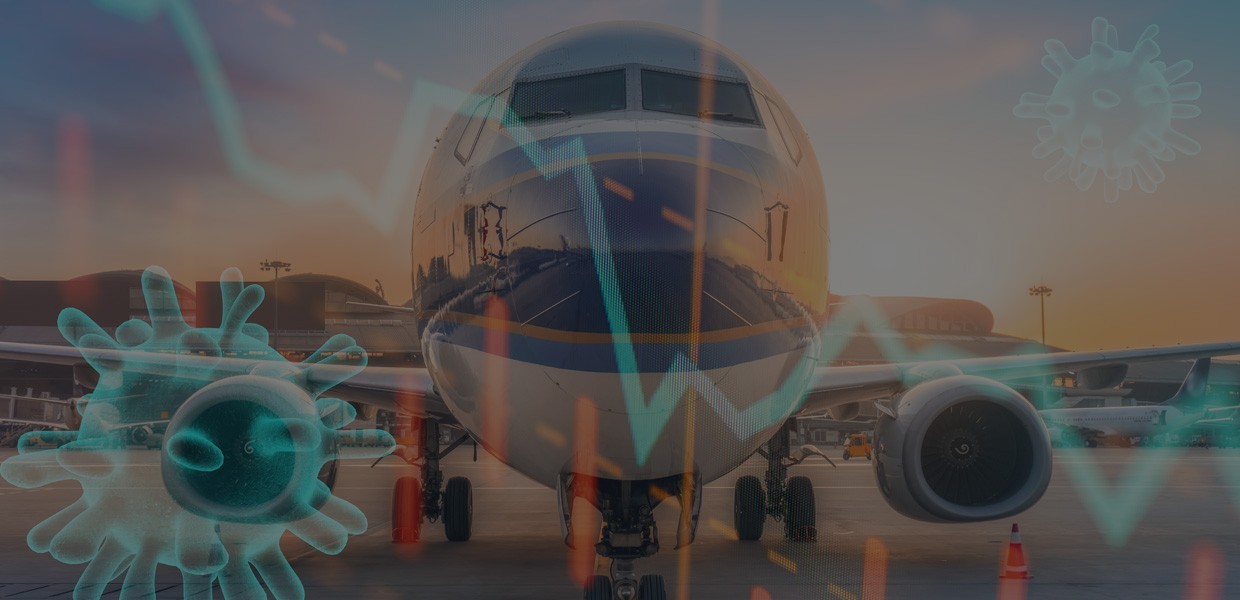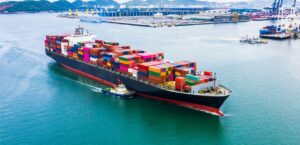Every industry has been rocked by the impacts of the coronavirus pandemic. The air transport industry is no different; airline revenues and passenger numbers are expected to drop by up to fifty percent according to the International Air Transport Association (IATA). Air travel restrictions will continue to suppress passenger numbers while airlines will have to cover the fixed operating costs associated with managing any type of air carrier.
For many in the air transport sector, it seems a gloomy scenario to be sure. However, the silver lining to the broader difficulty in the industry has been a sharp rise in demand for air cargo and freighting services, specifically. In fact, forecasts expect the global revenues for air transportation will reach $110.8 billion (R1.86 trillion) this financial year. The question remains: how is the industry thriving in a struggling global economy and will it last?
Capacity is down but revenues are up
No person, no business, no community and no industry can hide from the difficulties brought on by Covid-19. The world has been turned upside-down and economies are falling into recession left and right. Air freighting tonnes are falling too. The IATA believes that there will be over 10 million tonnes of air-transported cargo less than last year.
So, how are freight revenues still rising? It is simply a matter of supply and demand. The need for essential medical supplies, PPE and perishable produce felt by national governments around the world has seen a sharp increase in demand for air freighting services to deliver them. Not to mention, lockdown protocols have left millions in their homes wanting to order their comforts online.
That is the good news. However, there is good and bad news associated with rising demand in difficult, global financial circumstances. The massive increase in international support and production of this much-needed cargo will inevitably push the aircraft capacity of every air freighting company to their max.
Almost half of the world’s cargo is actually transported in the bellies of wide-bodied passenger planes and that number is steadily rising as technology advances. There is one major problem with those standard procedures in 2020: Covid-19. The pandemic has dropped the number of passenger planes travelling the globe dramatically as well as the vast layoffs and lockdown measures which have crippled many in the airline sector.
The rise in demand for air shipping is an exciting prospect at a difficult time. But it is important to note that as communities, businesses and governments are desperate for time-sensitive and reliable shipments, the fall in passenger numbers and revenues make meeting those demands a bit more challenging.
Fewer passengers could actually be a blessing in disguise for the air cargo industry
Turning these opportunities created by the devastating pandemic into the benefits we are seeing for many companies has been slow and difficult for others. For airlines and air freighters to benefit from this, four key changes need to be made to reverse some of the capacity shortages we have seen:
- Using freighter planes more consistently by decreasing their ground time, sending them on longer routes and making short postponements to scheduled maintenance.
- Reusing older, wide-bodied planes by converting them into all-cargo air transportation. Putting old passenger planes back to work is not a new tactic but one that could increase capacity significantly during the pandemic.
- The same goes for passenger planes in use now: they could be used as cargo planes by putting boxes on passenger seats and in the overhead lockers or removing its seats altogether.
- By enabling freight forwarders to charter passenger planes from various airlines, air cargo companies could boost their capacity and ease bottlenecks almost instantly.
These actions and many others taken by those in the air cargo industry have ensured the supply chain will continue to transport essential equipment and supplies, as well as more general consumer items. By taking these steps, the huge hoard of unused and grounded passenger planes could become a tremendous capacity relief to be sure.
Everything is uncertain but there is reason for optimism
The inevitable uncertainty that comes with handling a global pandemic cannot be blamed on governments. However, months into this new and difficult world, governments are not doing enough to remove the red tape in the way of keeping global supply lines as open and effective as possible, according to Alexandre de Juniac, IATA Director General and CEO.
It takes a lot of time, organisation and negotiation to manage the type and size of the current global demands for air cargo transportation. While the instability of the global marketplace can outweigh the massive growth in demand, the unilateral agreements and easing of economic impediments to cargo shipping are trending in the right direction.
PPE and medical supply demands are decreasing as medical professionals around the world are able to treat coronavirus patients more effectively and safely as well as, governments becoming more capable at meeting their national resource needs. Yet, the air cargo industry is still inundated with demands for personal, medical and commercial supplies that suggest the revenue growth we have seen will not being slowing down any time soon.



